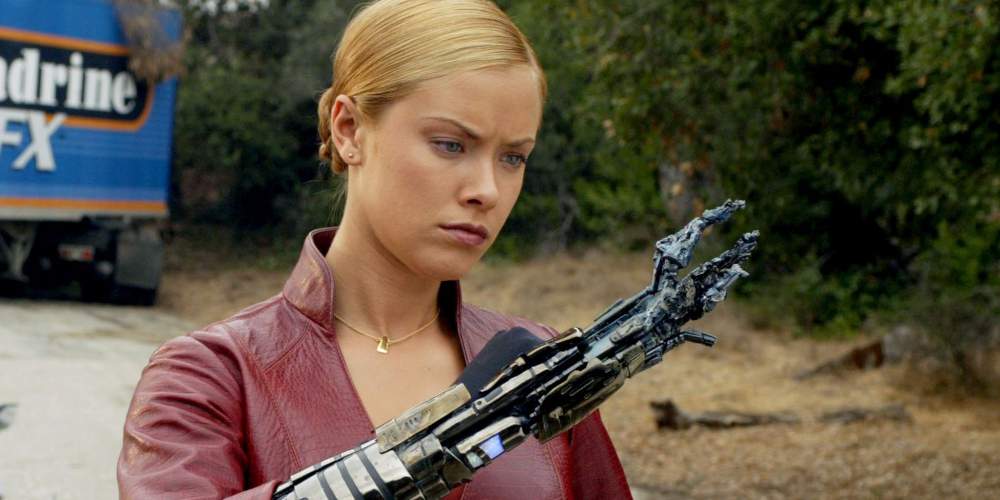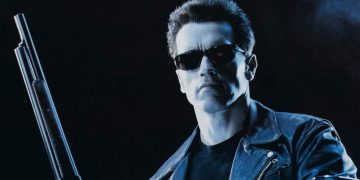When Terminator 2: Judgment Day released in 1991, it became the highest-grossing R-rated movie of all time. Not a bad result, considering the original Terminator was essentially a B-movie concept.
The legacy and societal impact of those first two films shaped a new era for action movies, and James Cameron's collaboration with ILM also revolutionized the use of special effects in cinema.
But once the dust of Terminator 2's success had settled, a problem arose. As it turned out, James Cameron had sold 50% of the rights to the Terminator franchise to his ex-wife Gale Anne Hurd after the success of the first film back in 1984.
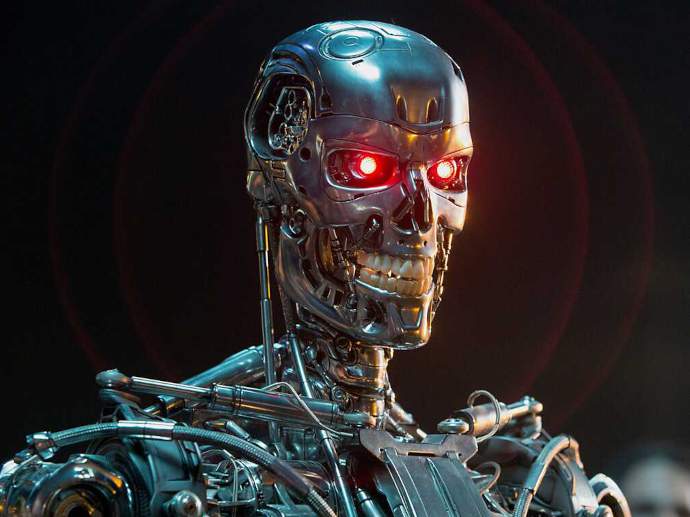
Meaning, nobody knew what to do with the franchise for a long time after Terminator 2, and it wasn't until 2003 that Terminator 3: Rise of the Machines came out—without James Cameron's involvement.
The film shifted the tone of the franchise away from its original dark tale of mankind's impending destruction to one that was more appealing to mass audiences.
Terminator 3 might have done well financially, but it struggled to win over the original audience, and critics rightly pointed out many fatal flaws. In the end, Terminator 3 felt like a softcore version of what the previous movies had been under Cameron's direction.
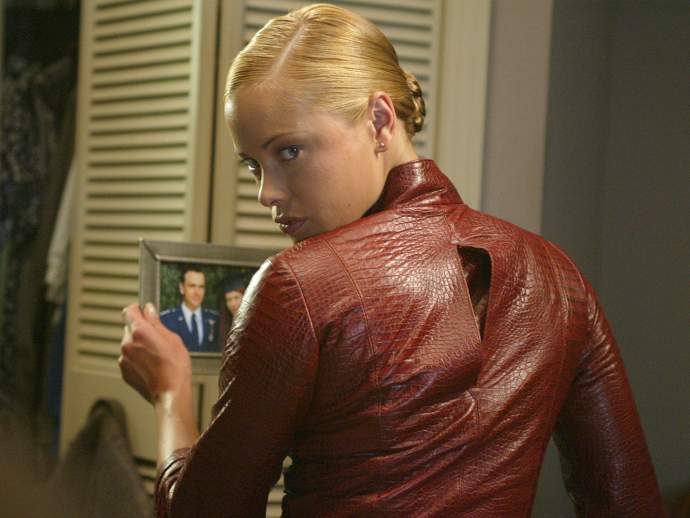
As of this writing, there are now six movies in the Terminator franchise along with a TV series in The Sarah Connor Chronicles, and they've proven to be a mess. New stars and directors have taken on the challenge of reinventing the films, but none have succeeded.
Where did the Terminator franchise go wrong? What needs to be done to revive the series and bring it back to its former glory?
Why the Terminator Movies Went Downhill
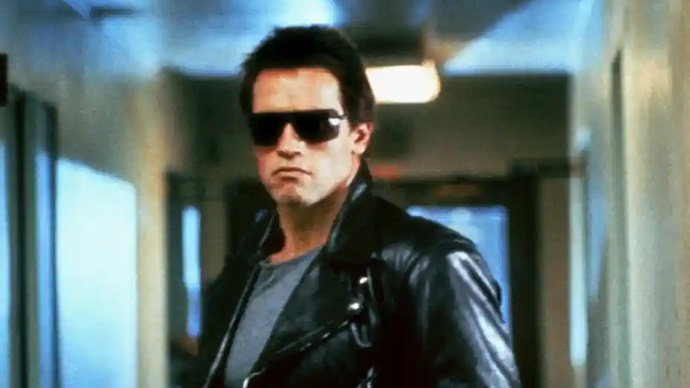
James Cameron's departure from the Terminator franchise killed the narrative momentum he'd been building with the first two films.
The manner of his sudden exit meant that he couldn't return even if he'd wanted to, and the result was a huge hit: one of the greatest sci-fi filmmakers of all time was no longer able to have any input as to where his story should go with future films.
Without the single-minded vision of James Cameron leading the franchise, the movies ended up in the hands of less-capable people who thought they could make a Cameron movie without Cameron. Looking back, it's obvious that they thought wrong.
The lack of Cameron's input can be felt in Terminator 3: Rise of the Machines, Terminator: Salvation, Terminator: Genisys, and Terminator: Dark Fate. (Cameron did produce Dark Fate after he agreed to help with the ailing franchise, but he wasn't director.)
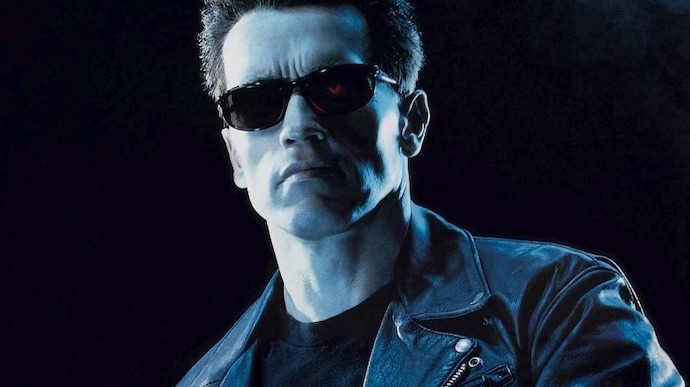
And then there's Arnold Schwarzenegger, whose acting career was made by the first two Terminator movies. The first one made him a star, the second one made him a megastar.
However, for all his appearances and comebacks to the Terminator franchise even after Cameron left, he hasn't been able to rescue it—to the point that viewers are now questioning why he's still involved.
While there's still an endearing love for Arnie and his impact on the franchise, he really should move on. His continued involvement is just holding it back from going in exciting new directions.
Arnold Schwarzenegger represents the success of the original films, but is also a punishing reminder of failures since. He's a beloved cinema icon, but not enough to be shoehorned in forever.
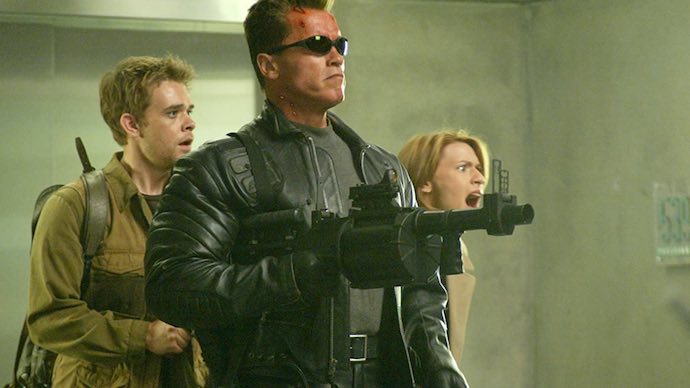
And that brings us to the core reason why the Terminator movies have been stagnating: the story is always the same.
While attempts have been made to drag the films away from its cycle of killing a person in the past to influence the future, the premise remains—and it has become an eye-rolling trope in modern sci-fi cinema.
The latter writers and directors of the Terminator franchise have tried staying true to Cameron's original vision for his films, but after almost 40 years, it's time to move on.
Director McG made an attempt to evolve the story by setting Terminator: Salvation in the future, and the idea wasn't bad. It just lacked the finesse and overall quality that other near-future sci-fi films have.
How to Revive the Terminator Franchise
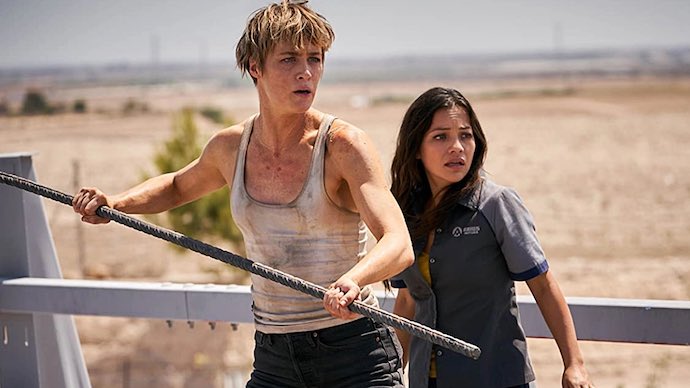
Let's step away from Terminator for a moment and look at another beloved sci-fi franchise in Blade Runner.
After the failure of Blade Runner 2049 at the box office, director Ridley Scott learned an important lesson: his vision for the beloved sci-fi series no longer belonged on the big screen.
The Blade Runner story needed to evolve, and that meant moving over to television. So, Ridley Scott inked a deal with Amazon to take the Blade Runner franchise to their platform, and he's now working on a highly-anticipated series called Blade Runner 2099.
This is the same treatment that the Terminator franchise needs. It can't sell enough tickets to audiences in our current era of blockbuster superhero cinema, so it needs to adapt to survive.
The Terminator franchise would thrive in a TV setting, much like The Sarah Connor Chronicles did years ago—only this time, it would also have the special effects and cinematic scope to back it up.
As of this writing, it's unclear how James Cameron would feel about moving his beloved franchise to television.

For all his unquestionable talent, James Cameron is not the right person to take the Terminator saga forward.
He's long since moved on from the franchase, and despite coming back as a producer for Dark Fate, him not being director for it makes a pretty clear statement that he wasn't interested or committed.
So, a new vision is needed. We need a fresh start that takes us away from the tone and legacy of the original movies and breaks new ground with new characters in a new setting ripe with potential.
James Cameron is great, but we need a modern filmmaker with modern ideas for where science fiction can go, someone who has the talent and energy to pour into rebirthing the sunken franchise.
Alongside his old friend Arnold Schwarzenegger, James Cameron should have no more involvement except as a hallowed guest at all future screenings of a revamped Terminator saga.
